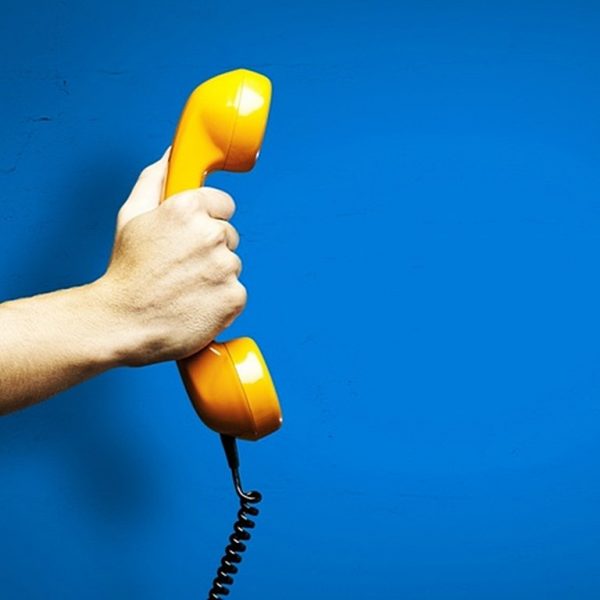Scam Calls and Texts Hit 45 Million UK People Over Summer UPDATE

The telecoms regulator, Ofcom, has estimated that 44.6 million UK people may have received scam calls and text messages during the past three months (summer period). But worryingly, around 2% of those who received such a message or call (roughly a million people) reported following the scammers’ instructions.
At present most of the major UK home broadband ISPs and mobile network operators have already developed technical measures to tackle Nuisance Calls and Text Messages (SMS), but these aren’t always 100% effective and there are still plenty of operators – particularly smaller providers and some VoIP firms – that take very little action.
Naturally, any significant rise in scam calls and texts, much like what has occurred over the last 18 months, is a cause for concern. In addition, Ofcom notes that the tactics used by fraudsters are becoming increasingly sophisticated, which include using multiple communication channels and spoofing well-known companies and organisations.
Advertisement
Results from Ofcom’s Consumer Survey
NOTE: The regulator’s survey is based off responses from 2,000 adults in the UK between 18-19th September 2021. All responses cover suspicious calls or messages received in the prior three months.
➤ 82% said they had received a suspicious message, in the form of either a text, recorded message or live phone call to a landline or mobile – representing an estimated 44.6 million adults in the UK.
➤ Scams are more commonly attempted via text messages with 71% saying they have received a suspicious text, and 75% of those aged 16-34 were targeted.
➤ 44% who had received a suspicious text message reported receiving such a message at least once a week.
➤ 61% of people aged 75 and over reported receiving a potential scam call to their landline.
➤ 53% of respondents who received a suspicious live phone call on a landline over the last three months said that they got a call at least once a week.
➤ 43% reported getting a suspect call to their mobile phone.
➤ 53% who received a suspicious text either deleted the message or blocked the number (52%).
➤ 49% of those who received a suspicious live voice call, and 44% who received a suspicious recorded message, blocked the number.
➤ 2% reported following the scammers’ instructions in a message or call.
➤ 79% of mobile phone users are not aware of the 7726 number used to report a suspected text or call – although a similar figure (81%) agreed that reporting messages is helpful in preventing people being scammed in the future.
If you’ve received a scam call, you can report it to Action Fraud, which is the reporting centre for fraud and cybercrime in England, Wales and Northern Ireland. Reports of fraud and any other financial crime in Scotland should be made to Police Scotland via 101. Meanwhile, anyone who receives a suspicious text message should report it by forwarding the message to 7726, which directs the message to your mobile operator.
At this point it goes without saying that you should never give out any personal or financial details to a suspicious caller. Instead, it’s wiser to just hang up the phone, wait a few minutes and then contact the relevant company (bank, internet provider etc.) on an official number to check if it’s a scam. As for suspicious text messages, NEVER click on any links or give out personal data.
Lindsey Fussell, Ofcom’s Networks and Communications Group Director, said:
“Criminals who defraud people using phone and text scams can cause huge distress and financial harm to their victims, and their tactics are becoming increasingly sophisticated.
Stay alert to any unsolicited contact. Put the phone down if you have any suspicion that it is a scam call, and don’t click on any links in text messages you’re unsure about. Report texts to 7726 and scam calls to Action Fraud or Police Scotland.”
In response to the surge in scam calls and texts, Ofcom merely reiterated that they’re “working closely with industry, police, government and other regulators” to ensure “strong actions” are in place to tackle the threat and to develop technical solutions, while also raising awareness of the issue.
The Government has recently set out plans to impose tougher penalties and fines for nuisance calls and text (SMS) messages (here), although it’s unclear how much of an impact that will have, particularly given that many of the perpetrators operate from outside the UK. A voluntary charter for telecommunications providers is also in development, which will set out what actions they can take to prevent fraud.
Advertisement
UPDATE 4:37pm
We’ve had a comment from EE, which reports that they’ve seen an 85% reduction in scam SMS reported to them using 7726 over the last three months. The operator has also identified and terminated more than 18,000 SIMs responsible for sending spam and scam SMS from their network.
An EE spokesperson said:
“We recently introduced an anti-spam filter that has blocked more than 42 million spam and scam SMS from our network. We’ve invested millions of pounds to protect our customers and educate them to be scam aware, as we know that scam calls and texts are a real concern.”
Mark is a professional technology writer, IT consultant and computer engineer from Dorset (England), he also founded ISPreview in 1999 and enjoys analysing the latest telecoms and broadband developments. Find me on X (Twitter), Mastodon, Facebook, BlueSky, Threads.net and Linkedin.
« Virgin Media O2 UK Officially Launches HUB 5 Broadband Router UPDATE3
Project Gigabit Expands Open Market Review for Phase 2 Areas »






















































These days I just ignore any unrecognised numbers because of the amount of scam calls I receive at times.
I think stopping all UK aid to India would probably force the government over there to start taking this issue more seriously.
@Buggerlugz
India doesn’t want UK money, they have been asking over the last few years for the UK to stop sending them payments as they don’t want or need it.
If a number isn’t in my phonebook, I don’t answer.
Just had a call from my ‘bank’ but lovely lady on the other side did not want to tell me which bank until i confirm my details…
Next time confirm “your” details and keep them on call to waste their time as much as possible.
The main offender here continues to be: “Chris your local energy advisor”, it is a robot dialler with an automated voice message, we have had hundreds of calls originating from a wide range of spoofed numbers.
I would love for some to address those – were now binning 01202 159xxx numbers to an answer phone on all out DDIs
Getting a massive amount of silent calls at the moment from 020 8434 XXXX. The last 4 digits change each time, these are happening daily.
Reported numbers to Vodafone/OFCOM/ICO but they still happen.
Managed to set my phone to automatically block 020 8434 *
Hopefully they’ll just drop off.
Am I the only one who doesn’t get spam calls or texts? I don’t give out my number unless I trust the business
It’s bizarre. Never had any issues up until the last 2 weeks of say, like I’ve mentioned in my comment above.
Always felt I was the lucky one who didn’t have these issues!
despite being ex-directory for 25 years i still bet at least 1 a week , i have caller display and i a number appears that i do not recognise i do not answer it then look it up on who calls me and usually block it via bt protect or if its on my mobile i block that too i also block the odd email . the wife gets texts about twice a week she blocks them too
In 2021, it wouldn’t surprise me if NHS test and trace was selling your details.
Amazingly the mobile phone companies are 100% to blame for this.
1) BAN PAYG SIM’s from making unlimited texts until 6-12 months reputation of continual topup using a genuine handset (not these bulk modems)
2) Reintroduce 1p interconnect for incoming calls from overseas so they cannot plague us with mass nuisance calls for free.
3) Restrict a PAYG SIM so it can ONLY message to 50 unique numbers a day.
4) Disallow these BulkModem IMEI’s unless vetted or used with contract SIM’s
5) Most of my Nuisance Bitcoin Texts etc come from 5-digit shortcodes. This is BUSINESS to BUSINESS how can this be a problem for them? BAN anyone who does not cooperate until they send in legal paperwork that they will behave or put up large deposits which can be lost due to abuse.
This is so simple to solve. But doing NOTHING is so much easier, right?
I have never been pestered by any scam calls since installing a phone which requires callers from unrecognisedn numbers to identify themselves before the phone rings. The only way this could be beaten would be to spoof a number already in my recognised numbers list.
Expecting end users to report nuisance calls is unreasonable in my opinion. It takes more effort than it is worth at that specific point in time.
Why isn’t it as simple as Ofcom requiring international inbound carriers to report their volumes, average call duration and percentage of calls under say 20 seconds by originating number or range on a monthly basis? Wouldn’t that identify suspicious traffic?